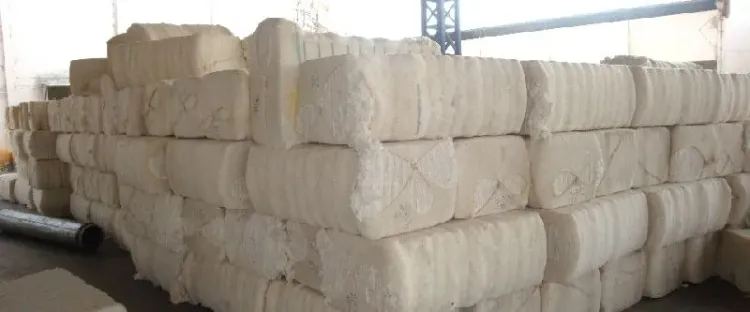Is the Government's Cotton Import Duty Exemption a Game Changer for the Textile Sector?

Synopsis
Key Takeaways
- Customs duty on cotton imports waived until September 30.
- All import duties totaling 11 percent have been eliminated.
- Decision aims to stabilize domestic cotton prices.
- Expected to reduce production costs for the textile sector.
- Supports the competitiveness of Indian textile exports.
New Delhi, Aug 18 (NationPress) In a strategic initiative to stabilize domestic cotton prices and bolster the textile sector, the government has eliminated all customs duties on raw cotton imports effective from August 19 until September 30, as per a statement released by the Ministry of Textiles on Tuesday.
This waiver encompasses the abolition of both the 5 percent Basic Customs Duty (BCD) and the 5 percent Agriculture Infrastructure and Development Cess (AIDC), along with a 10 percent Social Welfare Surcharge. In total, the entire 11 percent import duty on cotton has been removed, according to the statement.
The initiative, announced by the Central Board of Indirect Taxes and Customs (CBIC), is anticipated to reduce input expenses throughout the textile value chain, which includes yarn, fabric, garments, and made-ups, providing essential relief to both manufacturers and consumers.
This exemption is a direct response to ongoing requests from the textile industry, which has been advocating for the removal of import duties on cotton due to escalating domestic prices and supply issues, as stated.
By temporarily suspending these duties, the government seeks to improve the availability of raw cotton in the domestic market, stabilize cotton prices, and alleviate inflationary pressures on finished textile goods.
This action will enhance the export competitiveness of Indian textile products by decreasing production costs and safeguarding small and medium enterprises (SMEs) within the textile sector, which are particularly susceptible to price fluctuations, as noted in the statement.
This measure is expected to positively impact domestic cotton prices and support the overall well-being of the textile and apparel sector, a crucial contributor to employment and exports in India.
Numerous textile associations have expressed gratitude for the government's decision to exempt all cotton varieties from the 11 percent import duty and have thanked Prime Minister Narendra Modi and Textiles Minister Giriraj Singh for recognizing the industry's long-standing requests.









